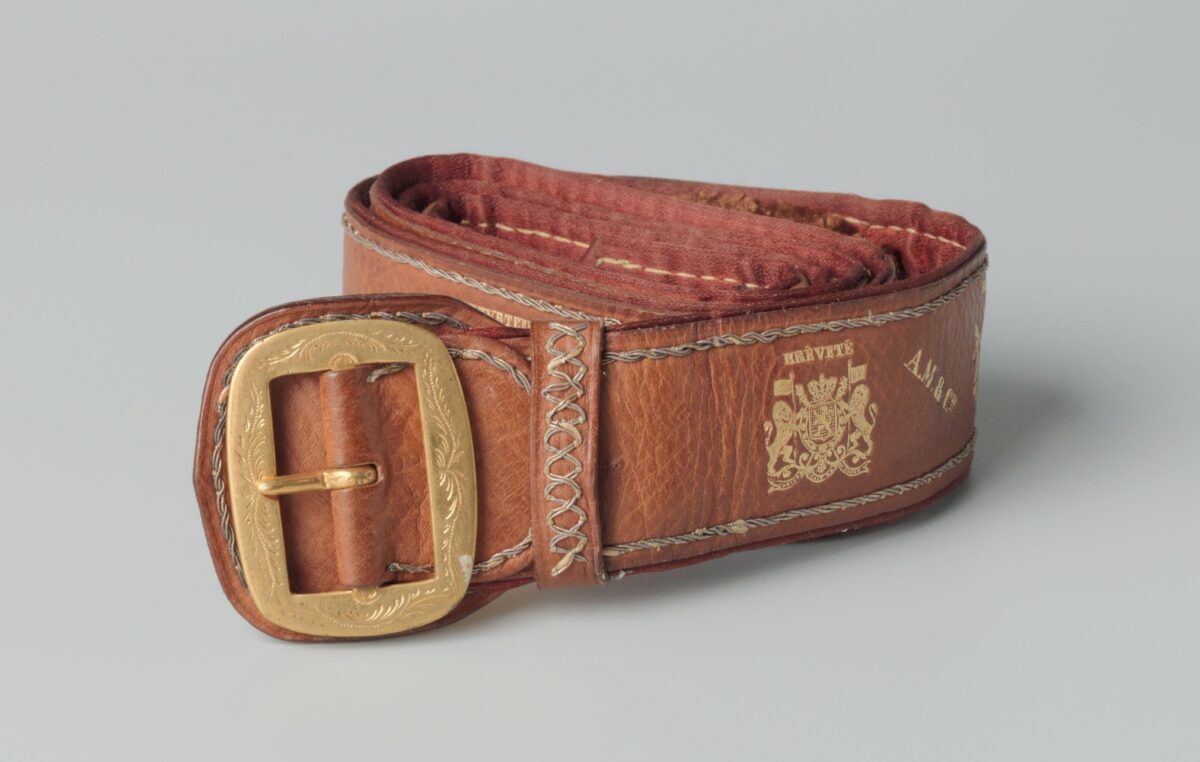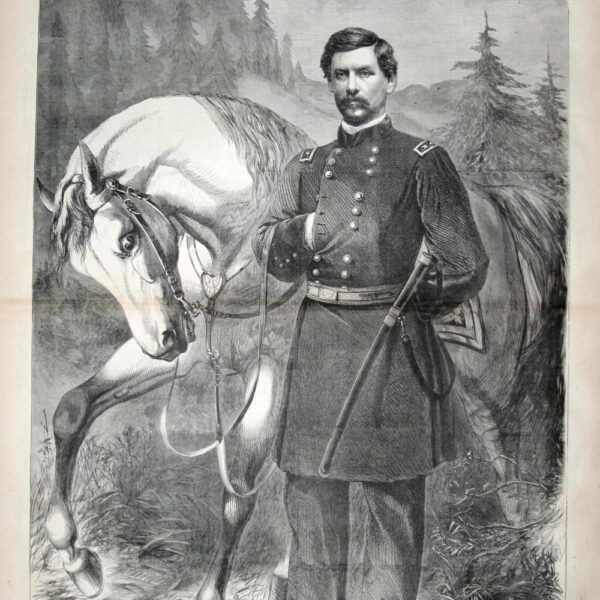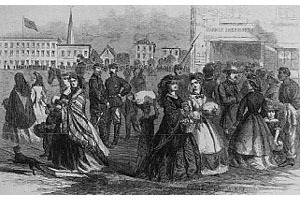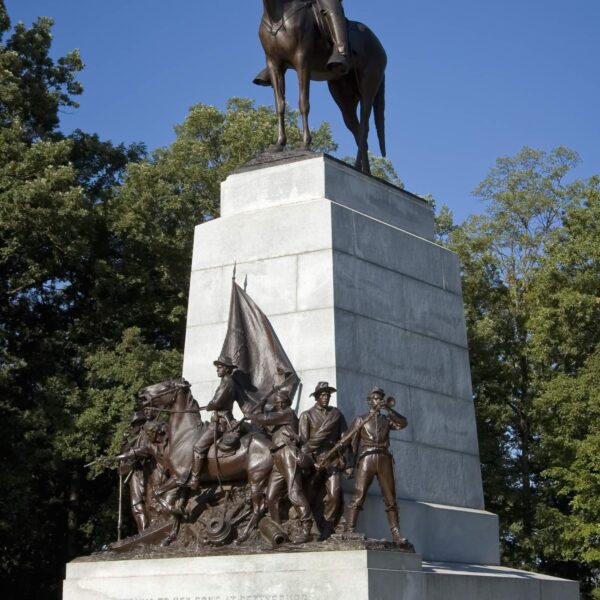 The Rijksmuseum
The RijksmuseumThis “aromatic belt” designed in Europe circa 1860 likely promised similar protections as the ones purchased by Civil War soldiers.
In the summer of 1862, Lieutenant Frank Dickerson of the 5th U.S. Cavalry spent time on sick leave at his family’s home at Belfast, Maine. Upon returning to his regiment in August, he wrote a letter to his father detailing his recent travels and relaying his impressions of Washington, D.C. After signing off, Dickerson added a postscript: “I got me one of the ‘aromatic belts or soldiers life preserver’ in Boston and think quite well of it. It is made of flannel inside of which there are placed some aromatic stimulants such as cayenne, etc. [I]t completely protects the stomach, keeping it warm etc. all the time.”
The “aromatic belt” Dickerson purchased was one of a number of suspect items peddled to the troops during the war. It was one that the editors of the Philadelphia journal The Medical and Surgical Reporter had pilloried after learning about it the previous year. In a short piece titled “Military Quackery,” they wrote of the belt:
“The same … spirit which clothed our volunteers in flimsy uniforms and sent them to spoiled provisions, is at work attempting to extort money from them in exchange for nostrums, claiming to prevent or cure diseases to which they may be liable. One of the most recent and deceptive of these is called an ‘aromatic belt,’ which is supposed to insure an immunity from affections of the bowels. We would suggest that the medical profession should use their influence in protecting soldiers from being thus imposed on and burdened with such useless trumpery, and induce the kind friends of the volunteers at home to spend their money, in sending to them in preference, articles of real utility.”
It’s unclear how many soldiers in search of protection against disease purchased an aromatic belt. As for Lieutenant Dickerson, he survived the war only to die in February 1866 from a combination of tuberculosis and chronic diarrhea, ailments his aromatic belt failed to protect him from. He was 24.
Sources
Dearest Father: The Civil War Letters of Lt. Frank Dickerson, a Son of Belfast, Maine, edited by H. Draper Hunt (1992); The Medical and Surgical Reporter, June 22, 1861.




